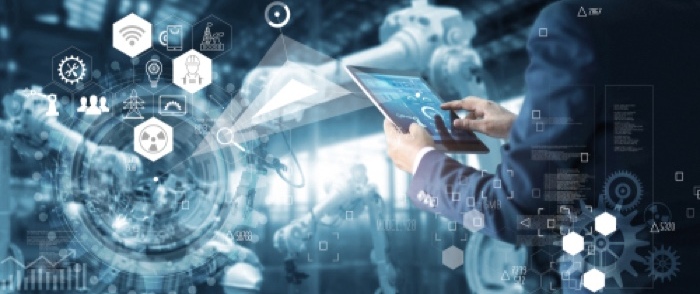The Impact of Artificial Intelligence in Business

While the changes that AI could bring are not yet fully understood, we know it has the capacity to change work as the world knows it.
The impact of artificial intelligence in business contexts isn't always clear-cut or easy to understand. However, today's business leaders should know a few things in order to be conversant on the topic of artificial intelligence (AI). What's the basic premise of AI, and how does it work? How will AI impact jobs and workers? What skills will be needed in an automated workplace?
The Basics of Artificial Intelligence
AI is a term that encompasses multiple types of computerized programs. In fact, someone talking about AI can be discussing anything from facial recognition tools powered by neural networks to machine learning that predicts the best word to use in a subject line to improve email open rates. According to Talent Tech Labs, "To be true AI, the technology must first learn from known inputs, then derive additional layers of abstraction to reach predictions that refines itself as the machine learns."
There are a few key areas of artificial intelligence worth understanding that fall under that broader category. The two types of AI technology most applicable to the business field today include:
- Machine Learning — a type of AI that provides computers with the ability to learn without being explicitly programmed. It works by examining large volumes of data and uses patterns in that data to improve a program's understanding and resulting predictions. An example of this is your favorite video streaming service being able to predict what movies you will enjoy based on your previous views and activity.
- Natural Language Processing — technology that reads, understands and responds to conversational language. An example is a chat bot. It's valuable because it can extract data from ambiguous, unstructured data sets like conversations. Elements such as context and tone can also be interpreted by the computer. Common applications of this software today include translation and speech recognition.
The innovative algorithms that run these underlying technologies can be applied to numerous use cases, both consumer and business focused. These technologies could change the workplace as we know it.
How Artificial Intelligence in Business Affects Jobs
A LinkedIn article points out the highly dynamic nature of the U.S. jobs market: "Finally, while 3.5 million jobs sound like a lot to lose, there are almost that many layoffs every two months in the United States, and another six million or so people voluntarily leaving their jobs. The American economy is both huge and dynamic; large numbers of jobs are lost all the time, and even more are created."
There is no shortage of headlines about robots taking jobs. However, while there may be some jobs that are changed or eliminated, others will be created or enhanced. And while some of that creative destruction of jobs may be true, it's also true that history provides examples of how labor and work change when new technologies are introduced.
Consider Google, Bing and other search engines. Prior to these tools being available, there was no way to easily find information on the internet. Today, these are essential technologies and new jobs have been created to support this shift. Search engine optimization has risen as a specific career discipline used to design more search-friendly websites, even though this job didn't even exist 20 years ago.
We don't know how AI will ultimately impact all jobs, but it's logical to look at more routine jobs that can be mechanized as low-hanging fruit. This could mean anything from data analysis to manufacturing, but algorithms can target any task that is repetitive.
Skills That Matter in an Al-Driven Workplace
According to Pew Research Center, nearly two-thirds of Americans say computers will take over the work of humans, but paradoxically, 80 percent of Americans say it wouldn't affect their own jobs. People think their work is immune to this technological advance, but it simply can't be true that all jobs are going to remain unchanged by these new tools.
Hiring, engaging and retaining a skilled workforce is an essentially human process. While there is incredible value to having tools — whether artificially intelligent or not — involved in the workflow, there's also value to personal connection and the human touch. For example, when you have a problem with your power, cell service or home internet connection, would you rather be directed to an automated message or speak to a human?
The same is true for candidates and employees — they need human interaction, even if it's augmented by technology. Historically, changes in technologies lead to changes in skills and competencies. The following five skills could become increasingly valuable as more and more work is automated:
- Dealing with ambiguity
- Understanding the emotions of others
- Leveraging credible expertise
- Determining reliability of information sources
- Influencing others
Overall, the important message to gather is this: while the changes that AI could bring are not yet fully understood, we know it has the capacity to change work as the world knows it. By understanding some of the areas of impact and ensuring the right skills are prioritized in your employees, you can maintain a proper balance of relying on machines and algorithms to handle some tasks while keeping the "human" element alive in your workforce.



